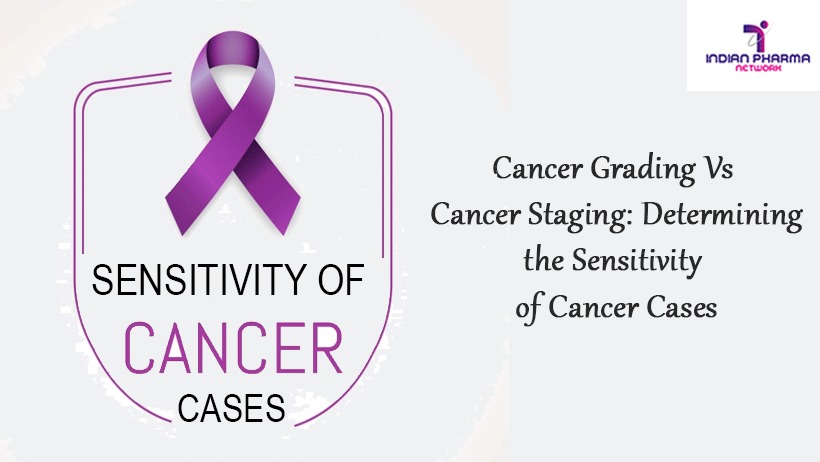Cancer Grading Vs Cancer Staging: Determining the Sensitivity of Cancer Cases
Cancer is an abnormal growth of cells. Cancer cells rapidly reproduce and are often shaped differently from healthy cells. They do not function properly and can spread to many areas of the body. These cells can form tumors, which are the clusters of cells that can grow and divide uncontrollably. After you have been diagnosed with cancer, your cancer doctor will usually want to do further tests to learn more about cancer.
Today, we will be getting to know about the processes of cancer grading and staging as it can help one to get the best treatment. Doctors use diagnostic tests like biopsies and imaging exams to determine cancer’s grade and its stage. Grading and staging help doctors and patients understand how serious cancer is and form a treatment plan, they measure two different aspects of the disease.
What is a Cancer Grade?
Cancer’s grade describes how abnormal the cancer cells and tissue look under a microscope when compared to healthy cells. Cancer cells that look and organize most like healthy cells and tissue are low-grade tumors. The grade also gives an idea of how quickly cancer may grow. Many cancer hospitals follow the following grading:
Grade 1: In this stage, cancer cells look like normal cells and usually grow slowly. These cells are known as well-differentiated tumors and are considered low grade.
Grade 2: In this grade, the cells and tissues are abnormal and are called moderately differentiated cells. These are intermediate-grade tumors.
Grade 3: In the grade, the cells and tissues look very abnormal. These cancers are considered poorly differentiated since they no longer have architectural structures or patterns. Grade 3 tumors are considered as high grade.
Grade 4: In this grade, the undifferentiated cancers have the most abnormal-looking cells. This is the highest grade of cancer, and typically tends to grow and spread faster than lower grade tumors
Defining the Stages of Cancer
Once cancer is diagnosed, your healthcare provider will conduct more examinations and tests to find out the size of cancer and where it is. These exams and tests will let us know whether cancer has grown into nearby areas and if it has spread to other body parts.
A cancer stage describes how large the primary tumor is and how far cancer has spread in the patient’s body. These examinations may take one to two weeks to complete. There are several types of different staging systems that cater to different types of cancers.
Stage 0 to Stage IV
As we have already discussed the stages of cancer, let us mention the brief about it.
- Stage 0 is for abnormal cells that have not spread and are not considered cancer, though they could become cancerous in the future. This stage is called “in-situ.”
- When Cancer is in Stage I to Stage III, it does not spread into the other parts of the body beyond the primary tumor site and the nearby tissue. The higher the stage number, the larger the tumor and the more it has spread. In stage IV, cancer has spread to distant areas of the body. Exploring the TNM Staging System.
Another most common and most famous staging tool for determining the cancer stage is the TNM system. Founded by American Joint Committee on Cancer (AJCC), the TNM classification system has been used by doctors to stage many different types of cancers based on certain common standards. TNM stands for the Tumor(T), Node(N) and Metastasis(M) categories.
- T describes the primary tumor.
- N tells whether the cancer has spread to the nearby lymph nodes.
- M tells whether the cancer has spread (metastasized) to distant parts of the body.
The Primary Tumor (T Category)
When doctors try to determine how much and where the cancer is in the body, they first look at the primary(main) tumor, which is where cancer started. Doctors try to determine its size, location, and whether it has spread into nearby areas or not. Doctors might also look at other parts of the body to see if cancer has spread. The T category can be assigned a letter or a number as follows:
TX: No information about the primary tumor, or it can’t be measured.
T0: No evidence of a primary tumor or it cannot be found).
T(is) T in situ: Cancer cells are only growing in the layer of cells where they started, without growing into deeper layers.
T1, T2, T3, T4: A number after the T refers to the size and/or extent of the main tumor. The higher the number after the T, the larger the tumor or the more it has grown into nearby tissues.
The Regional Lymph Nodes (N Category)
Lymph nodes are small, bean-shaped collections of immune cells that help in transferring the lymphatic fluid throughout the body. Generally, doctors check lymph nodes which are near the primary tumor are usually checked to find out if cancer has spread into them. The N category can be assigned a letter or a number as follows:
- NX: No information about the nearby lymph nodes, or they can’t be assessed.
- N0: Nearby lymph nodes do not contain cancer.
- N1, N2, N3: A number after the T refers to the size and/or extent of the main tumor. The higher the number after the T, the larger the tumor or the more it has grown into nearby tissues.
Metastasis (M category)
When cancer has spread to other parts of the body from the primary location, it is known as metastasis. Doctors might also look at other parts of the body to see if cancer has spread. The M category can be assigned a letter or a number as follows:
- M0: No distant cancer spread has been found.
- M1: Cancer has been found to have spread to distant organs or tissues.
However, each cancer type has its version of the TNM categories, so letters and numbers don’t mean the same thing for every type of cancer. For some cancer types, TNM categories may also have subcategories. These are noted with lowercase letters after the category. For example, T3a or T3b.
The Final Takeaway: Cancer Grading and Cancer Staging can be a Complex
As we know that medical science is always evolving, doctors and research centres are finding more about cancer, its spread, and how it is treated. As these findings are adding to the staging and grading system for different types of cancer, it takes more time for doctors to understand the calculations and calculate accurate results.
If you are not sure about the stage and grade of your cancer, do consult your doctor to explain it in detail for you. You can also reach out to the team of best pharmaceutical consultants at Indian Pharma Network as we will assist you with the best advice and any medication/treatment that you need from any part of the globe.
Reference Links:
- https://www.urmc.rochester.edu/encyclopedia/content.aspx?contenttypeid=85&contentid=p00554
- https://www.urmc.rochester.edu/encyclopedia/content.aspx?contenttypeid=85&contentid=p00554
- https://www.macmillan.org.uk/cancer-information-and-support/diagnosis/staging-and-grading
- https://www.cancer.net/navigating-cancer-care/diagnosing-cancer/stages-cancer
- https://www.kucancercenter.org/patients-caregivers/cancer-education/cancer-overview


